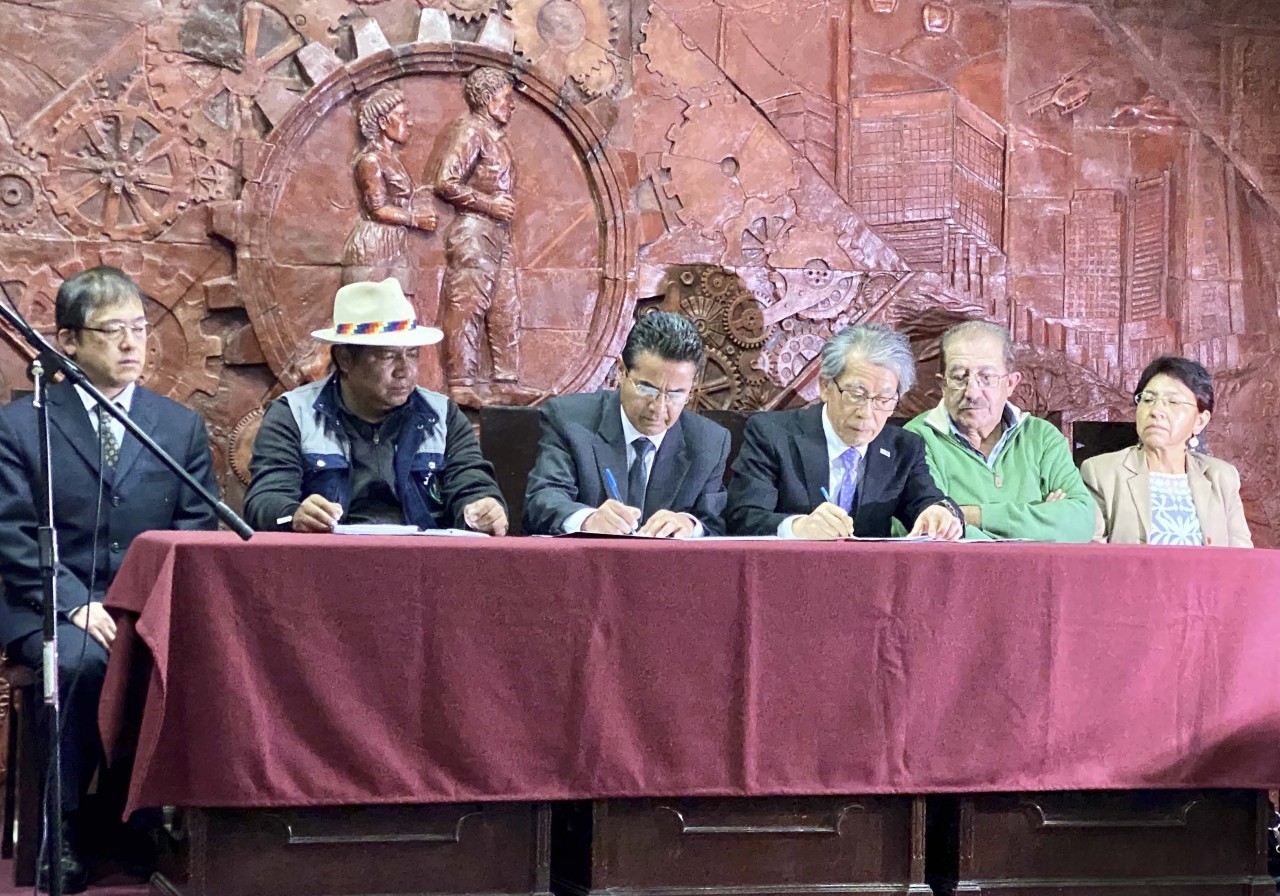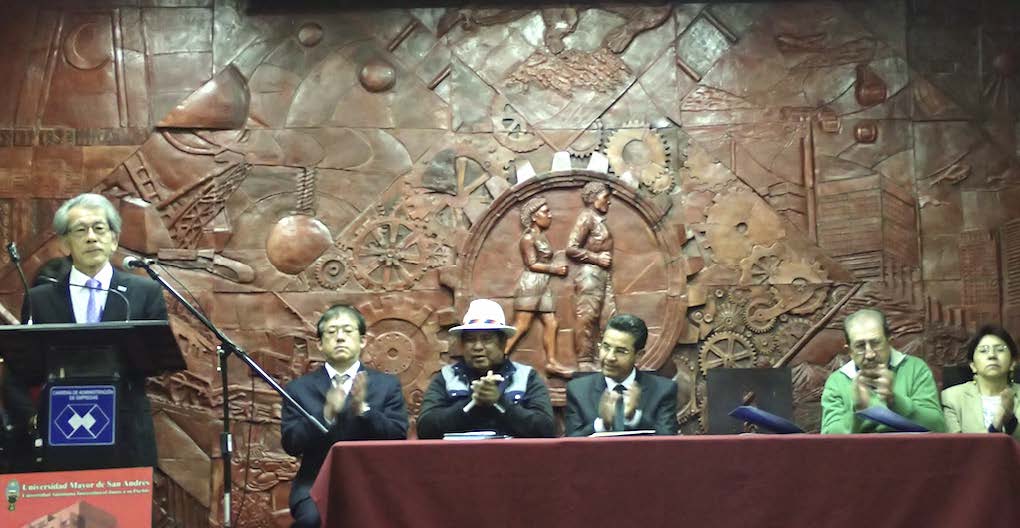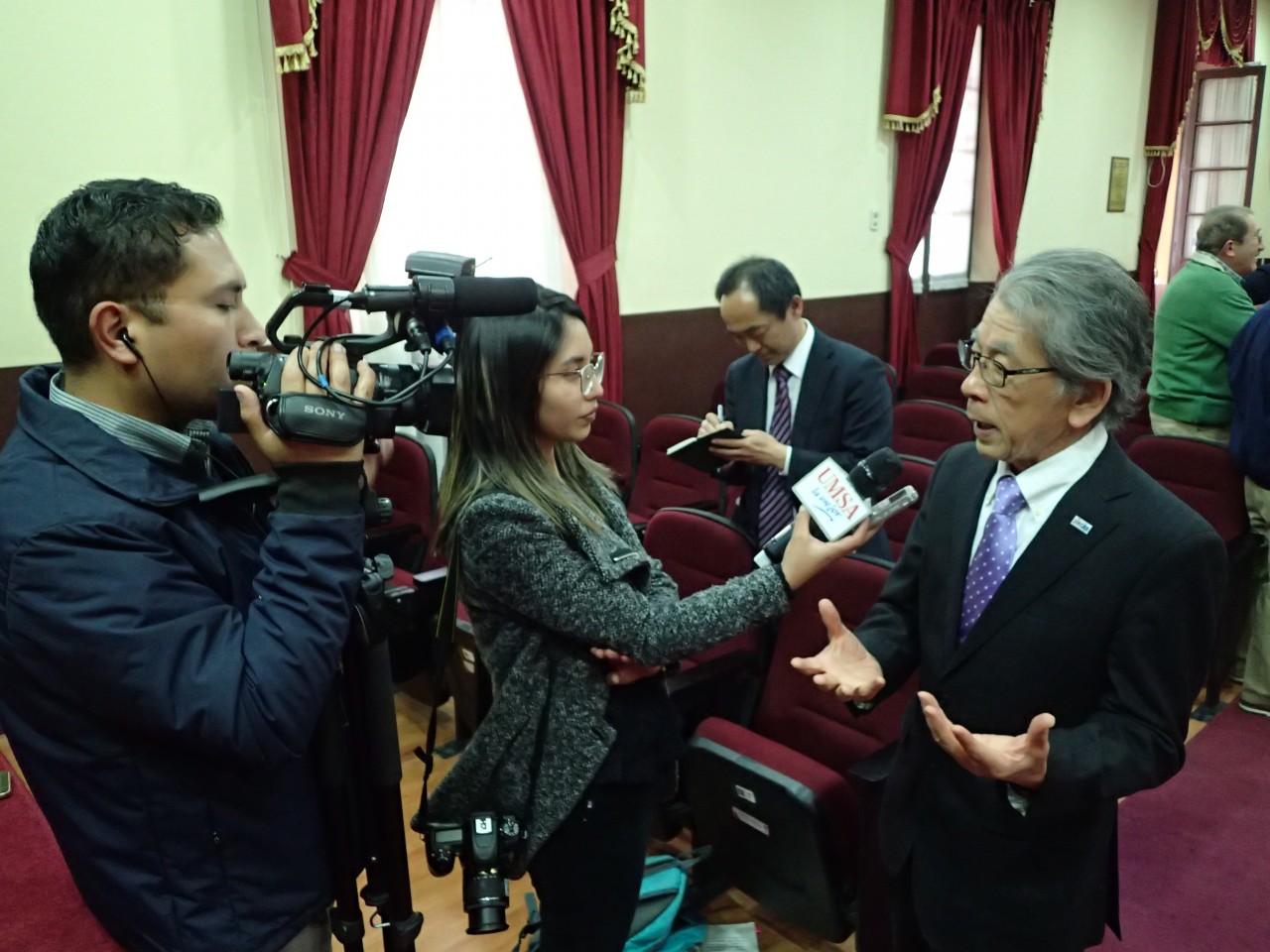The joint research between JIRCAS and Bolivia’s Higher University of San Andres (UMSA: Universidad Mayor de San Andrés) and PROINPA was concluded with the signing of a Collaborative Research Agreement (CRA) held at the UMSA Headquarters in La Paz, Bolivia on March 9, 2020. The CRA was signed by Pres. Iwanaga Masa on behalf of JIRCAS, and Dr. Wilfredo Tavera Llanos (Rector of the UMSA) and Dr. Antonio Ganadarillas (PROINPA General Manager).
From FY2020, JIRCAS will collaborate with UMSA and PROINPA, Kyoto University, Obihiro University of Agriculture and Veterinary Medicine, and Tokyo University of Agriculture and Technology in a SATREPS project entitled “Strengthening of resilience in arid agro-ecosystems vulnerable to climate change through research on plant resources and technological applications”.
Quinoa has been cultivated as a "mother grain" for more than 7,000 years in the harsh environmental conditions of the Altiplano Plateau in Bolivia with dry and salty soils. However, quinoa production is gradually becoming unsustainable due to recent climate change and soil degradation. The joint research project aims to develop and disseminate quinoa production with enhanced resilience based on sustainable agricultural ecosystem conservation and management technologies.
The participants included Dr. Luis Morales (Faculty of Pure and Natural Sciences), Dr. Giovanna Almanza and Dr. Isabel Morales from UMSA, Dr. Wilfredo Rojas from PROINPA, and Dr. Yasunari Fujita and Dr. Yukari Nagatoshi from JIRCAS. The other participants from Japan were Dr. Yasuo Yasui (Kyoto University), Dr. Yuji Toukura (Obihiro University of Agriculture and Veterinary Medicine), and Dr. Keisuke Katsura (Tokyo University of Agriculture and Technology). The project was also attended by Mayor Walter Rojas of the City of Umara, where the field research base is located. As a gesture of friendship through this project, the mayor presented Pres. Iwanaga with a traditional Umara hat and stoll.
In an interview with the UMSA TV station, Pres. Iwanaga explained in Spanish that this project will contribute to agricultural production and environmental sustainability in arid regions of Bolivia through research on breeding and cultivation techniques to maximize the ability of quinoa to resist drought. Pres. Iwanaga also paid a courtesy call to the Ministry of Environment and Water Resources (MMAyA) to exchange views on the importance of the project in agriculture in Bolivia.



